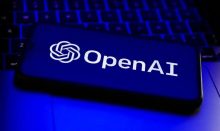
This week, OpenAI made a suggestion that ChatGPT, the well-known chatbot that uses AI to generate texts like essays, emails, poems, and even computer codes, could soon start costing money. OpenAI announced on the company’s official Discord channel that it is thinking of commercializing the AI tool and naming it ChatGPT Professional. This will “ensure the tool’s long-term viability” among other reasons.
On the Discord server, the company has also provided a link to a waitlist that contains a series of payment-related questions. Among the questions therein is one that enquires about the price (per month) that respondents would consider too expensive to pay for ChatGPT.
The waitlist form’s submitters may be chosen for a ChatGPT Professional pilot. According to OpenAI, the service is still in its experimental stages and won’t be made generally available yet.
ChatGPT has faced a lot of controversy and bans. However, it has been successful in generating major media coverage for OpenAI and countless online memes. Several investors have also adopted the tool into their operational procedures. Ryan Reynolds, a co-owner of Mint Mobile, for example, promoted the mobile network using ChatGPT. Microsoft reportedly plans to incorporate ChatGPT’s AI into Bing as well as its Office software.
It’s expensive to maintain ChatGPT
With over a million subscribers as of December, ChatGPT has had an astounding user base. But it costs money to keep the service running, an “eye-watering” cost according to Sam Altman, the co-founder, and CEO of OpenAI.
The professional version of ChatGPT that’s being created will be more powerful and have fewer restrictions.
OpenAI is under pressure to generate revenue from ChatGPT
Microsoft could invest $10 billion in OpenAI, thus the company is under pressure to generate revenue from services like ChatGPT. OpenAI expects to produce only $200 million in 2023. That’s in comparison to the more than $1 billion that it has already invested in the company.
Reports claim that Microsoft wants to buy a 49% stake in OpenAI, which would put the company’s valuation at roughly $29 billion. Up until it recovers its investment, Microsoft will receive 75% of OpenAI’s earnings. Other investors taking 49% and OpenAI keeping the final 2%.
With a “capped-profit” business model, OpenAI has an unusual corporate structure that limits investors’ returns to 100 times their investment, or less.










